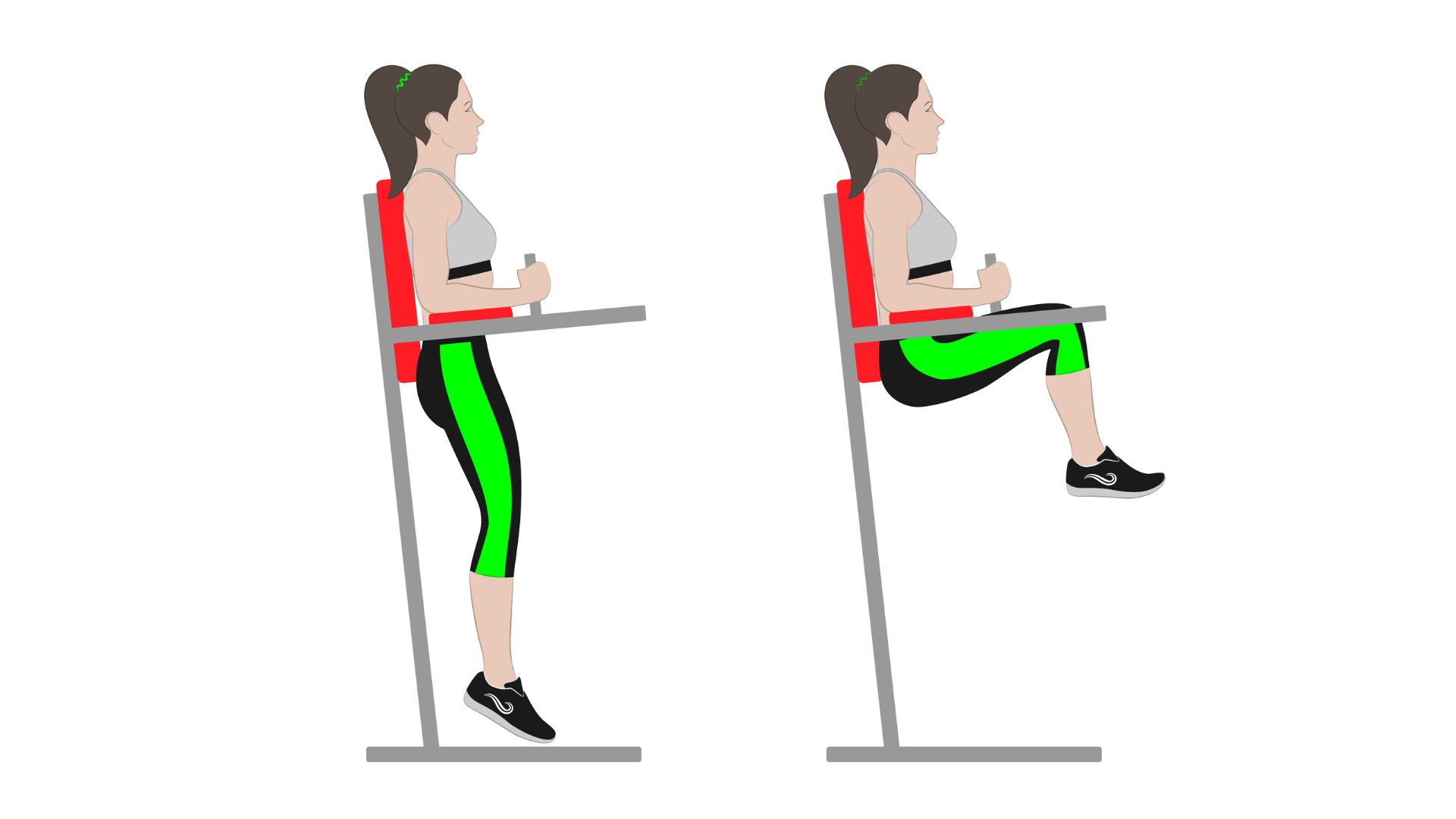What's a coregasm? Everything you need to know about popular TikTok hack that fuses fitness with sex
Coregasms can come about through many different types of exercise but this is the main one


Aoife Hanna
The idea of a coregasm is nothing new and even more old-school is the workout routine that can provoke one. But as with all types of trends, popular workouts come around on social media again and again.
Admittedly, this one doesn't promise unrealistic abs or a revolutionary way to change your fitness levels overnight. Many people might even be doing it already, without even knowing it.
While the coregasm workout didn't make the list of top fitness trends 2023, we have no doubt that those looking for a little extra workout motivation will find it here. So, whether you've experienced a coregasm yourself and you're wondering what it's all about or you want to know how to bring a little something extra to your gym routine this week, woman&home speaks to the experts to reveal all there is to know.
What is a coregasm?
A coregasm, as the name might suggest, is exercise-induced sexual pleasure. It's been a point of interest for sexologists and women's health researchers for years now as the (limited) research on the subject suggests that it tends to happen spontaneously without any prior physical or mental sexual stimulation.
"What's really exciting about this area of research is that it indicates that the female orgasm is possible without any need for arousal, physical stimulation, or fantasy," Mika Simmons, actress, author, women's health activist, and host of The Happy Vagina podcast. "It was traditionally suggested that for a woman to have an orgasm, she needed more foreplay, maybe some deep conversation or an extra-long cuddle. But this finding, which reveals that women can reach climax simply through physical engagement, liberates women from that dogma and encourages us to explore the female orgasm outside of patriarchal reductive teaching about female pleasure."
Dr Janet Brito, an AASECT-certified sex therapist and supervisor at Lovehoney tells woman&home, "Coregasms work for non-sexual orgasms due to an individual’s anatomy and physiology, headspace at the time of the exercise, and repetitive motion of the exercise." She adds, however, that, "they are not necessarily linked to erotic content, but more associated to repetitive body movements."
Why do some people get coregasms?
Unfortunately, scientists aren't exactly sure why some people can have an orgasm through exercise at the gym and others can't. There's only ever been one study on this particular type of sexual pleasure, conducted by Debby Herbenick at Indiana University, and the findings couldn't conclude why exactly they happen.
Sign up to our free daily email for the latest royal and entertainment news, interesting opinion, expert advice on styling and beauty trends, and no-nonsense guides to the health and wellness questions you want answered.
The research does say that participants who experienced the orgasm mostly did so during or after heavy ab workouts (51%). However, others reported that exercises such as weightlifting (27%), yoga (20%), cycling (16%), and running (13%) were also competed or completed when the feeling hit.
"While it is suggested that core strength might be an essential factor in having coregasms, it's not a guarantee," says Simmons, who is also the author of The Happy Vagina, available in the US from January 31 2023.
What does a coregasm feel like?
Those who have experienced coregasms tend to describe a sensation that begins like a flutter in the lower abdomen and then spreads to a powerful, euphoric feeling throughout the vagina, says Simmons, pointing to the results of a survey conducted within The Happy Vagina international community. "On deeper investigation, the women we spoke to said they likened the feeling to a vaginal over a clitoral orgasm," she adds.
The same survey, which 1000 women took part in, also shed some light on how common these types of orgasms could be. Around 15% of the group had experienced a coregasm, while 38% had not, and a substantial 48% weren't entirely sure. This suggests, just as Debby Herbenick said in her initial report, significantly more research and openness to the subject is required to fully understand corgasms and how they happen.
But if you've experienced the sensation and you're concerned about it, one thing's for sure: they're perfectly natural. "Particularly where sex and orgasms are concerned, it’s helpful for us to remember there is no such thing as normal," Simmons says.

How to have a coregasm
The research by Herbenick reports that those who experienced corgasms tended to do so when their lower abdominal muscles were exhausted after a workout. This typically involved leg raises in a piece of equipment called the captain's chair, a rack with padded armrests, and back support. In this structure, people typically place their arms on the rest and lift their knees up and toward their chest or at a right angle to make an L-shape with their body.
"If you want to explore it, the evidence indicates that a coregasm may be enabled by activating and contracting the pelvic floor muscles to strengthen the potential for clitoral or vaginal stimulation," Simmons adds. "But regardless of whether you achieve a coregasm, it's worth exercising these muscles as, aside from supporting the uterus, bladder, and lower bowl, they can also activate the pudendal nerve. This is the main nerve of the pelvis, which can stimulate pleasure and increase the strength of your potential climax.

Grace Walsh is woman&home's Health Channel Editor, working across the areas of fitness, nutrition, sleep, mental health, relationships, and sex. She is also a qualified fitness instructor. In 2025, she will be taking on her third marathon in Brighton, completing her first ultra marathon, and qualifying as a certified personal trainer and nutrition coach.
A digital journalist with over seven years experience as a writer and editor for UK publications, Grace has covered (almost) everything in the world of health and wellbeing with bylines in Cosmopolitan, Red, The i Paper, GoodtoKnow, and more.
- Aoife HannaJunior News Editor